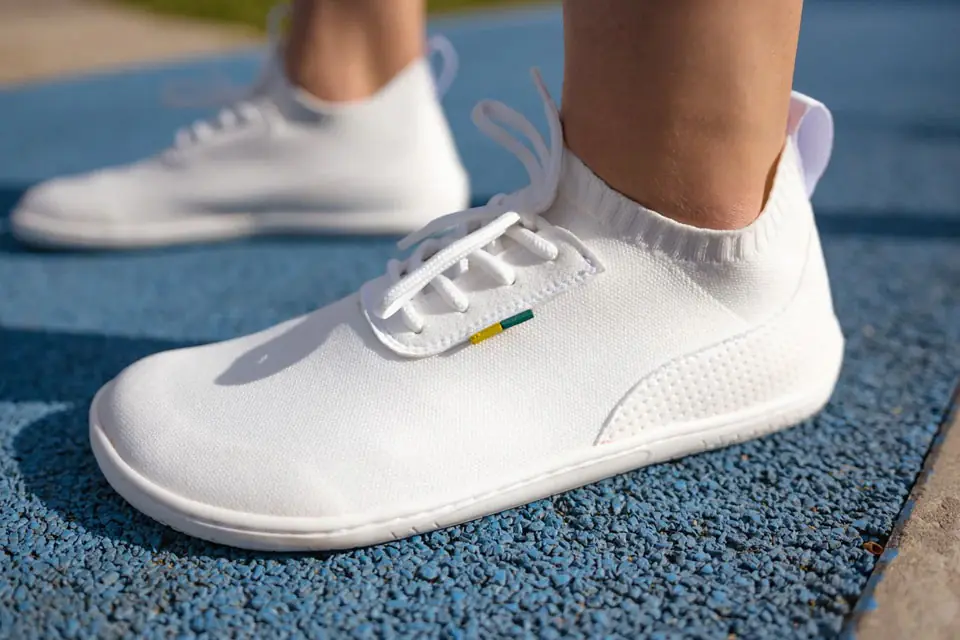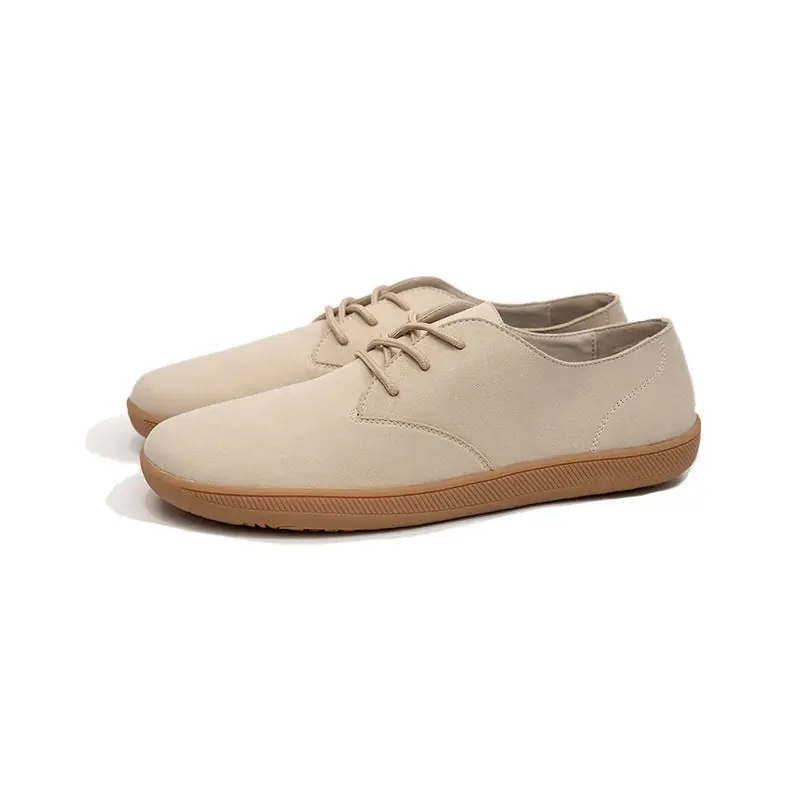
Are Barefoot Shoes Good for Neuropathy
Neuropathy, a condition characterized by nerve damage, can significantly impact foot health and overall quality of life. As more people seek alternative solutions to manage their symptoms, barefoot shoes have emerged as a potential option. But are barefoot shoes good for neuropathy? Let’s delve into this topic and explore the potential benefits and considerations of using barefoot shoes for those dealing with neuropathy.

Table of Contents
Understanding Neuropathy and Its Impact on Foot Health
Neuropathy is a complex condition that affects the peripheral nerves, often resulting in numbness, tingling, and pain in the extremities, particularly the feet. For those with neuropathy, maintaining foot health is crucial, as the loss of sensation can lead to injuries and complications. Traditional footwear often focuses on cushioning and support, but barefoot shoes offer a different approach that may be beneficial for some neuropathy sufferers.
The Barefoot Shoe Philosophy
Barefoot shoes, also known as minimalist shoes, are designed to mimic the natural movement of the foot. They typically feature:
- A wide toe box
- Zero drop (no heel elevation)
- Thin, flexible soles
- Minimal cushioning
The idea behind barefoot shoes is to allow the foot to move and function as it would naturally, without the constraints of traditional footwear. This approach can have several potential benefits for those with neuropathy.
Potential Benefits of Barefoot Shoes for Neuropathy
1. Improved Sensory Feedback
One of the primary advantages of barefoot shoes for neuropathy is the enhanced sensory feedback they provide. The thin soles allow for greater ground feel, which can be particularly beneficial for those with reduced sensation in their feet. This increased sensory input may help:
- Improve balance and proprioception
- Reduce the risk of falls
- Enhance overall awareness of foot position and movement
2. Reduced Pressure Points
Barefoot shoes typically feature a wide toe box, allowing the toes to spread naturally. This design can help distribute pressure more evenly across the foot, potentially reducing pain and discomfort associated with neuropathy. By minimizing pressure points, barefoot shoes may:
- Alleviate pain in specific areas of the foot
- Reduce the risk of developing calluses or ulcers
- Promote better circulation throughout the foot
3. Strengthening Foot Muscles
The minimalist design of barefoot shoes encourages the natural movement and engagement of foot muscles. For neuropathy patients, this can be particularly beneficial as it may:
- Improve overall foot strength and stability
- Enhance blood flow to the feet
- Support better arch function and foot alignment
4. Potential for Nerve Stimulation
Some proponents of barefoot shoes suggest that the increased ground contact and natural foot movement may provide a form of gentle stimulation to the nerves in the feet. While more research is needed in this area, the theory is that this stimulation could:
- Potentially aid in nerve regeneration
- Improve overall foot sensitivity over time
- Contribute to better overall foot health
Considerations When Using Barefoot Shoes for Neuropathy
While barefoot shoes offer potential benefits, it’s important to consider several factors before making the switch, especially for those with neuropathy:
- Gradual Transition: It’s crucial to transition slowly to barefoot shoes, allowing your feet and legs time to adapt to the new way of moving.
- Individual Assessment: Not all cases of neuropathy are the same, and what works for one person may not be suitable for another. It’s essential to consult with a healthcare professional before making significant changes to your footwear.
- Proper Fit: Ensuring a proper fit is critical, especially for those with reduced sensation in their feet. Non-slip barefoot shoes with a wide toe box are particularly important to prevent rubbing and potential injury.
- Protection: While barefoot shoes promote natural foot movement, they may offer less protection against sharp objects or extreme temperatures. This is an important consideration for neuropathy patients with reduced sensation.
- Monitoring: Regular foot checks are crucial for those with neuropathy, regardless of the type of shoes worn. Pay close attention to any changes in your feet when transitioning to barefoot shoes.
Choosing the Right Barefoot Shoes for Neuropathy
When selecting barefoot shoes for neuropathy, consider the following features:
- Wide Toe Box: Look for shoes that allow your toes to spread naturally.
- Flexible Sole: A thin, flexible sole promotes natural foot movement and ground feel.
- Zero Drop: Ensure the heel and toe are at the same level to encourage proper foot alignment.
- Breathable Materials: Opt for shoes made from breathable materials to reduce moisture and prevent fungal infections.
- Secure Fit: Choose shoes with adjustable closures to ensure a snug, comfortable fit without constricting the foot.
Complementary Strategies for Managing Neuropathy
While barefoot shoes may offer benefits, they should be part of a comprehensive approach to managing neuropathy. Consider incorporating the following strategies:
- Regular Exercise: Gentle exercises, such as walking or swimming, can improve circulation and overall foot health.
- Foot Massage: Massaging the feet can help stimulate nerve endings and improve blood flow.
- Proper Nutrition: A balanced diet rich in B vitamins and antioxidants may support nerve health.
- Stress Management: Reducing stress through techniques like meditation or yoga can have positive effects on overall health, including neuropathy symptoms.
- Regular Check-ups: Maintain regular appointments with your healthcare provider to monitor your neuropathy and adjust your management plan as needed.
The Science Behind Barefoot Shoes and Neuropathy
While anecdotal evidence suggests potential benefits of barefoot shoes for neuropathy, scientific research in this specific area is limited. However, some studies on barefoot movement and minimalist footwear have shown promising results that may be relevant to neuropathy management:
- A study published in the Journal of Foot and Ankle Research found that minimalist shoes can improve foot muscle strength and arch function.
- Research in the Journal of Sport and Health Science suggests that barefoot running can enhance proprioception and balance, which could be beneficial for neuropathy patients.
It’s important to note that more targeted research is needed to fully understand the impact of barefoot shoes on neuropathy specifically.
FAQs About Barefoot Shoes and Neuropathy
Can barefoot shoes cure neuropathy?
Barefoot shoes are not a cure for neuropathy. However, they may help manage some symptoms and improve overall foot health when used as part of a comprehensive treatment plan under medical supervision.
How long does it take to see benefits from using barefoot shoes for neuropathy?
The timeline for experiencing benefits can vary greatly among individuals. Some people may notice improvements in sensation or comfort within a few weeks, while others may take several months to adapt and see positive changes.
Are there any risks associated with using barefoot shoes for neuropathy?
While barefoot shoes can offer benefits, there are potential risks, especially for those with reduced sensation. These include increased risk of injury from sharp objects or uneven surfaces. It’s crucial to transition slowly and monitor your feet carefully.
Can I wear barefoot shoes all day if I have neuropathy?
It’s generally recommended to gradually increase the time spent in barefoot shoes. Start with short periods and slowly extend the duration as your feet adapt. Always listen to your body and consult with your healthcare provider.
Are there specific barefoot shoe brands recommended for neuropathy?
While there are no specific brands exclusively for neuropathy, look for reputable barefoot shoe manufacturers that prioritize wide toe boxes, flexible soles, and quality materials. Custom Barefoot Shoes offers a range of options that may be suitable for those with neuropathy.
Conclusion
Barefoot shoes present an intriguing option for individuals managing neuropathy. While they may not be a one-size-fits-all solution, the potential benefits of improved sensory feedback, reduced pressure points, and enhanced foot strength make them worth considering as part of a comprehensive neuropathy management plan.The key to success with barefoot shoes lies in a careful, gradual transition and close monitoring of your feet’s response. It’s crucial to work closely with your healthcare provider to determine if barefoot shoes are appropriate for your specific case of neuropathy and to ensure they complement your overall treatment strategy.Remember, every individual’s experience with neuropathy is unique, and what works for one person may not be ideal for another. By combining the potential benefits of barefoot shoes with other management strategies and regular medical care, you may find a path to improved foot health and overall well-being.If you’re considering exploring barefoot shoes as an option for managing your neuropathy, Custom Barefoot Shoes offers a wide range of minimalist footwear options. From non-slip walking shoes to wide toe box sneakers, their collection is designed with foot health in mind. Take the first step towards a potentially more comfortable and natural walking experience today!
